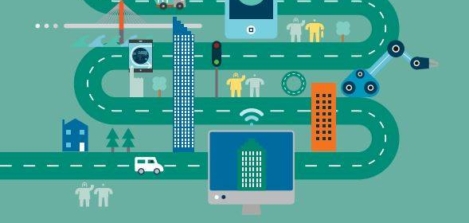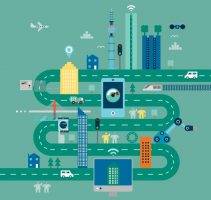August 24, 2016
Futurist says UK gender pay gap will close much earlier than predicted 0
 Following the latest report that shows that the gender pay gap is still wide open comes claims that in the UK, the gap will close within the next 30 years. That’s the view anyway of futurist, trend forecaster and journalist, James Wallman. While the World Economic Forum believes that the world-wide gender pay gap won’t close by 2133, Wallman paints a more positive picture, forecasting the UK pay gap will actually close much sooner — by 2045. His reasoning is that it’s far harder to hide wage disparity in an age of data digitisation, meaning companies are compelled to be transparent. There is manifest political will behind pay parity, with new legislation meaning that by 2018 all companies with more than 250 employees will have to publish their gender pay gap data. And he argues there are numerous economic imperatives to get women working; if the same proportion of women worked in Britain as in Sweden, it would add £170bn to the UK economy and boost GDP by 9 percent.
Following the latest report that shows that the gender pay gap is still wide open comes claims that in the UK, the gap will close within the next 30 years. That’s the view anyway of futurist, trend forecaster and journalist, James Wallman. While the World Economic Forum believes that the world-wide gender pay gap won’t close by 2133, Wallman paints a more positive picture, forecasting the UK pay gap will actually close much sooner — by 2045. His reasoning is that it’s far harder to hide wage disparity in an age of data digitisation, meaning companies are compelled to be transparent. There is manifest political will behind pay parity, with new legislation meaning that by 2018 all companies with more than 250 employees will have to publish their gender pay gap data. And he argues there are numerous economic imperatives to get women working; if the same proportion of women worked in Britain as in Sweden, it would add £170bn to the UK economy and boost GDP by 9 percent.










 When former Google employee Marissa Mayer joined Yahoo as its CEO in 2012, she inherited the company’s vast problems. Though it was once seen as one of the first tech behemoths, Yahoo’s inability to come up with ground breaking products like Google and others, put it in a slow, steady decline. Mayer was immediately tasked with trying to reinvigorate the stagnating company. Her focus was to find a way to identify and retain talent, while phasing out ineffective employees. However, Yahoo’s new management policies have brought about much debate and criticism from HR experts. A controversial book by journalist Nicholas Carlson titled “Marissa Mayer and the Fight to Save Yahoo!” paints a highly critical view of Mayer’s first years as CEO. In response others have defended her, arguing that she has done the best she can with the resources available, but has become a scapegoat for poor management, like so many other women in powerful positions.
When former Google employee Marissa Mayer joined Yahoo as its CEO in 2012, she inherited the company’s vast problems. Though it was once seen as one of the first tech behemoths, Yahoo’s inability to come up with ground breaking products like Google and others, put it in a slow, steady decline. Mayer was immediately tasked with trying to reinvigorate the stagnating company. Her focus was to find a way to identify and retain talent, while phasing out ineffective employees. However, Yahoo’s new management policies have brought about much debate and criticism from HR experts. A controversial book by journalist Nicholas Carlson titled “Marissa Mayer and the Fight to Save Yahoo!” paints a highly critical view of Mayer’s first years as CEO. In response others have defended her, arguing that she has done the best she can with the resources available, but has become a scapegoat for poor management, like so many other women in powerful positions.
 It is no longer a question of whether one of the world’s major economies will introduce a universal basic income for all of its citizens, but when. Over the weekend, the leader of the UK’s Labour Party Jeremy Corbyn announced in
It is no longer a question of whether one of the world’s major economies will introduce a universal basic income for all of its citizens, but when. Over the weekend, the leader of the UK’s Labour Party Jeremy Corbyn announced in 
 The corporate real estate profession will be influenced, disrupted and transformed in the years ahead by a powerful combination of forces that are re-shaping business strategy and operations, consumer preferences, and how and where people want to live and work, according to a new report from CoreNet Global.
The corporate real estate profession will be influenced, disrupted and transformed in the years ahead by a powerful combination of forces that are re-shaping business strategy and operations, consumer preferences, and how and where people want to live and work, according to a new report from CoreNet Global. 


 The legal status of people working in the gig economy must be clarified so that businesses and individuals can thrive, according to a new report from the Recruitment & Employment Confederation (REC).
The legal status of people working in the gig economy must be clarified so that businesses and individuals can thrive, according to a new report from the Recruitment & Employment Confederation (REC). 
 Two of the most persistent and related structural problems facing the UK economy are the productivity and digital skills gaps. Earlier this month, the Office for National Statistics reported that there had been a further 1.2 percent fall in productivity. Part of the reason for this is that there is an underlying digital skills gap. According to a report from Barclays, nearly a third (31 percent) of working-age adults in the UK lack even basic digital problem-solving skills which places the country comfortably below the 37 percent average across OECD countries. Despite this, a mere 38 percent of UK employers offer their workers digital skills training, perhaps because on the other side of the coin, the UK ranks highly in what the report calls ‘digital empowerment’, which it defines as ‘the ability and desire to use one’s digital skills to work productively and creatively, and to have the opportunity to continually upgrade them to keep pace with changing technology’.
Two of the most persistent and related structural problems facing the UK economy are the productivity and digital skills gaps. Earlier this month, the Office for National Statistics reported that there had been a further 1.2 percent fall in productivity. Part of the reason for this is that there is an underlying digital skills gap. According to a report from Barclays, nearly a third (31 percent) of working-age adults in the UK lack even basic digital problem-solving skills which places the country comfortably below the 37 percent average across OECD countries. Despite this, a mere 38 percent of UK employers offer their workers digital skills training, perhaps because on the other side of the coin, the UK ranks highly in what the report calls ‘digital empowerment’, which it defines as ‘the ability and desire to use one’s digital skills to work productively and creatively, and to have the opportunity to continually upgrade them to keep pace with changing technology’.
 Whether or not you raise an eyebrow every time you hear about the need for employee engagement, there is a growing body of research which links engagement to performance.
Whether or not you raise an eyebrow every time you hear about the need for employee engagement, there is a growing body of research which links engagement to performance. 


 Global law firm Osborne Clarke has released its fourth
Global law firm Osborne Clarke has released its fourth 








August 17, 2016
Do people really matter when we design workplaces? 0
by Steve Maslin • Comment, Events, Facilities management, Workplace design
(more…)